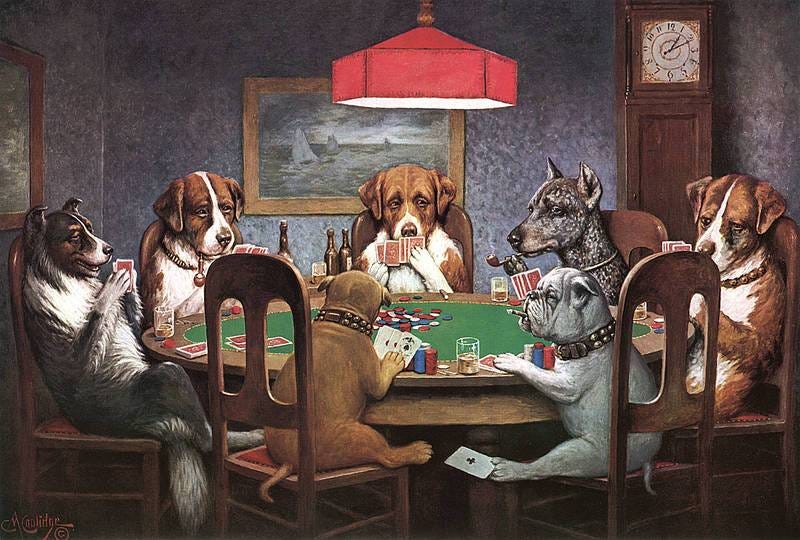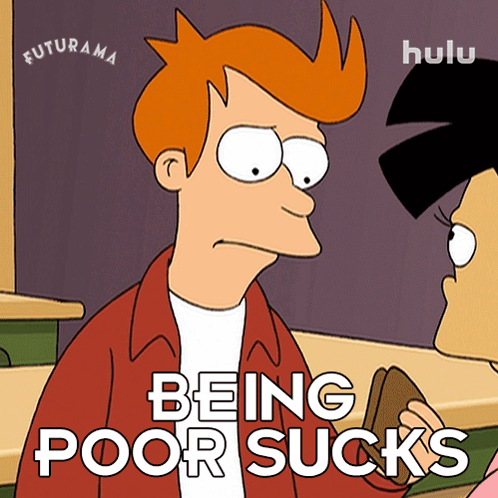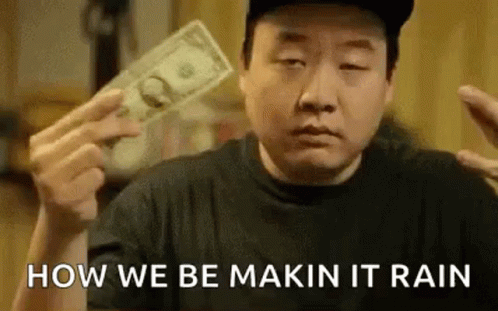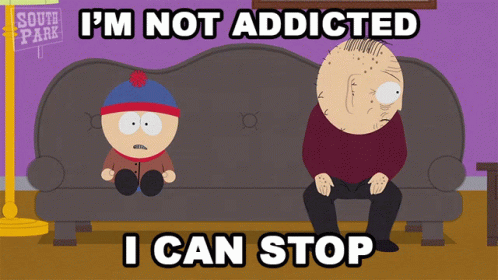Vices, Devices, and the Tech That Entices - Online Gambling
Part 1 of a new series on differing perspectives on our new bad digital habits. I mean your bad habits. I'm as pure and innocent as the driven snow.

Polymarket is re-entering the US market, and I’ve been following the data on the impact of young males having access to online sports gambling sites like Draft Kings, and here are 3 arguments for and 3 arguments against widespread, legal online gambling:
Arguments For Universal Access to Online Gambling for American Adults.
Freedom.

Picture this, America: a land where a man can toss his hard-earned bucks into the neon jaws of chance, not because some suit in D.C. says it’s kosher, but because it’s his God-given right to dance with the devil of his choosing. That’s the gospel of individual freedom, baby, the red-white-and-blue pulse of personal responsibility that says adults, grown-ass humans with wallets and dreams, get to decide their own bets, whether it’s on Polymarket’s blockchain roulette or a poker game with the boys. This ain’t just libertarian jive; it’s the U.S. Constitution winking at you over a whiskey, whispering, “The government guards your liberty, but not your lifestyle.” Legalizing online gambling unshackles the citizen to sling stablecoins (a USDC backed and transparent digital currency) into prediction markets that scream self-expression louder than a Coyote’s howl.
AInvest’s crystal ball sees a $107 billion market by 2030, and Reuters’ scoop on Polymarket’s $112 million QCEX grab proves the people are ravenous for this freedom. Sure, the do-gooders might clutch their pearls, crying about addiction, but hold your horses there, preacher. Polymarket’s opt-in sets limits, and building a system that trusts adults to ride the risk without banning the rodeo. Blanket bans? That’s just tyranny in a nanny’s dress, stomping on the sacred dirt of personal agency.
Economics
Strap in, dreamers and schemers, because legalizing online gambling isn’t just a roll of the dice, it’s going to be a goddamn economic supernova, blasting jobs, tax dollars, and tech wizardry into the American bloodstream. Platforms like Polymarket, with their crypto-charged, blockchain-buzzing bets, are the new frontier, and the numbers don’t lie: the gambling racket pumped $74 billion into the U.S. economy in 2024, per the American Gaming Association, and Polymarket’s CFTC-anointed arrival on September 3, 2025, is set to pile on billions more, according to AInvest’s crystal-ball gazers.
We’re talking state budgets fattened up for schools and bridges. Ethereum transactions sparked Fintech revolutions, and a $500 billion underground market was dragged into the sunlight, where it feeds regulated coffers instead of mob bosses’ wallets. The naysayers, clutching sobstories, wail about bankruptcies and social wreckage, but here’s the counterpunch: tax that gambling gold and funnel it into safety nets like addiction hotlines and debt counseling, and you’ve turned a vice into a public good, a pirate’s haul that rebuilds the town it plundered.
Ban it? You’re just handing the loot back to the black market, you pious fools.
3. Enhanced Information Aggregation and Public Insight
Legalizing prediction markets like Polymarket isn’t just a bet, it’s a goddamn Ouija board for the collective soul, outsmarting the pontificating pollsters and ivory-tower experts with the raw, unfiltered wisdom of the crowd. Forget blind luck; these punters are slinging cash on elections, NFL showdowns, and economic tea leaves with the kind of research that’d make a librarian blush.
Reuters (2025-09-03) clocks Polymarket’s real-world betting focus, and with $600,000 already riding on pigskin post-CFTC approval, this ain’t no back-alley craps game. It’s a data-driven middle finger to the noise of a fractured America, and while the skeptics scream about market bubbles and manipulation, blockchain’s transparent ledger and the CFTC’s eagle eye keep the game cleaner than a preacher’s Sunday suit. Ban this? You’re torching a lighthouse for public knowledge and handing the crystal ball to the same elites you claim to despise.
Arguments Against Universal Access to Online Gambling for American Adults.
1. Vulnerability of Young Males to Addiction
Hold onto your hats, you high-rolling dreamers, because legalizing online gambling, even slick beasts like Polymarket, throws open the gates to a digital inferno that’s got young dudes hooked, cooked, and spiraling before they can grow a proper beard. Apps like Polymarket hook young brains with dopamine hits, making boundaries a must.
The Boys Education crew (2025) clocks a 15% surge in teen gambling addiction, with 10% of young bucks already twitching away like slot-machine junkies, thanks to apps that dangle instant gratification like a dealer’s free hit. These kids, their brains still half-baked in the impulse-control oven, get hijacked by the dopamine rush of a bet, torching their grades, bank accounts, and mental mojo faster than you can say “all in.” According to Pew Research, 45% of guys under 30 are flashing problem behaviors, a neon warning sign that Polymarket’s mass-market poker face could turn teen betting into the new normal, with long-term costs piling up like Vegas debt.
The free-market cowboys crow about adult self-regulation, but early exposure is a pipeline to perdition, normalizing the gamble so grown men fall harder than a drunk at a craps table. Ignore this, and you’re not just rolling dice—you’re betting the future of a generation, you reckless bastards.
2. Economic and Social Harm to Families

So, my starry-eyed casino shills, legalizing online gambling ain’t just a game; it’s a wrecking ball swinging straight for the family hearth, leaving young men and their kin buried under debt and despair: Online platforms are turning boys into broke-ass dreamers who drain the family coffers faster than a Vegas bender. For those with wives and children who get pulled into the chase for the next big hit and bets the family’s savings, he’s not just a broke loser, he’s leaving wives and kids in the lurch.
The National Council on Problem Gambling lays it bare: one problem gambler torches seven relationships - hidden debts, bankruptcies, and the kind of shame that cracks marriages and sends dads to the streets, all because society’s still whispering “be the provider” in their ears. The Guardian tallies the carnage at $14 billion a year in social costs like job losses, divorces, communities buckling under mental health meltdowns, all while Polymarket’s flood of new betting toys only pours gas on the fire. The suits crow about tax revenue patching the holes, but those bucks roll in too slow to outrun the slow-burn chaos of delayed bankruptcies and broken homes, especially for the young ones already drowning. Greenlight this, and you’re not just rolling dice - you’re gambling with the ties that bind, you heartless high-rollers.
3. Performative Bravado and Risk-Taking Culture

Legalizing online gambling is much more than just a wager; it’s a high-octane trap, wiring young bucks into a culture of performative bravado that dangles glory and delivers a gut-punch to their souls. The BoysEducation.us.edu posse (2025) lays down the law: digital platforms hijack the competitive, status-chasing streak in boys, with a 2024 study clocking young men three to four times more likely to drown in gambling’s quicksand than women, suckered by apps that peddle the “big win” myth like a carnival barker on steroids.
Polymarket’s event-betting frenzy fuels this fire, with ads and peer pressure whispering that real men bet big or bust. The Mayo Clinic has dug deeper, linking childhood scars to compulsive gambling as guys chase bets to outrun their demons, only to crash into cycles of emotional wreckage and self-worth in tatters, far from the grounded role models we’re fighting for. The libertarian gunslingers may holler, “It’s just choice, brother,” but those who care about the future of civilization snap back: Polymarket’s branding and society’s bravado fetish rig the game for kids still learning to stand tall, not swagger blind. Greenlight this, and you’re not just rolling dice - you’re betting the hearts of a generation, you slick peddlers of the performative hustle.





